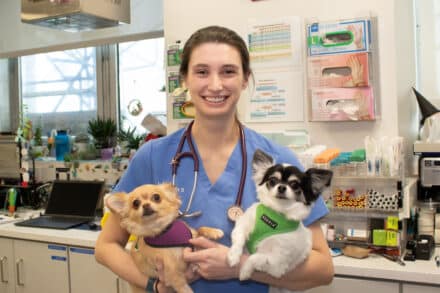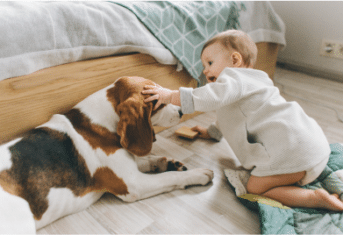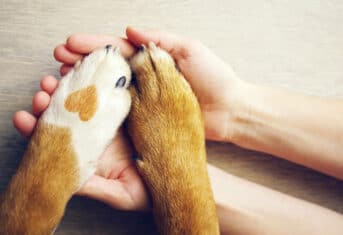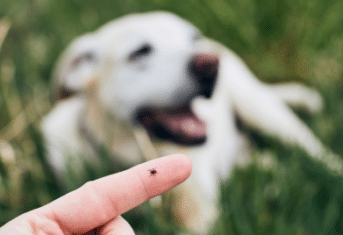Does Getting Older Mean Getting Slower?
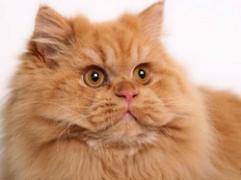
Does Getting Older Mean Getting Slower?
Oftentimes the owners of my older patients dismiss changes in their pet’s behavior by saying, “Well, you know he is 13.” I would like to caution all of us to think critically about the changes we are seeing in our older pets and examine the potential causes of these changes.
The American Association of Feline Practitioners classifies a senior cat as one that is older than 11 years of age and the American Animal Hospital Association defines a senior dog as one older than 6 or 7 years of age. There is great variability in the expected lifespan of dogs compared to cats and your veterinarian may not consider your dog to be senior until 9 or 10 years of age, depending on the breed. Panels of the American Association of Feline Practitioners and the American Animal Hospital Association recommend the senior pet be seen biannually.
Weight Gain
Older pets tend to pack on the pounds as they age. Your Dalmatian may be sluggish because she is carrying around too much weight for her slender frame. Pet owners who are successful with a weight loss plan often comment on how much more active their pets are after they reach an ideal body weight. Veterinarians can help you to design a safe weight loss program which includes both diet and exercise for your pet. Obesity not only slows your pet down, but is a risk factor for diabetes, arthritis, respiratory disease, urinary tract disease and, worst of all, a shortened lifespan.
Arthritis
Slowing down may be a clinical sign of arthritis. Arthritis brings to mind the limping Lhasa or the achy Afghan, but did you know arthritis is commonly under-diagnosed in cats? Diet change, weight loss and non-steroidal anti-inflammatory drugs, specifically developed and tested in pets, can completely revert your arthritic pet’s personality back to normal.
Dental Problems
Tooth problems can also slow your pet down too. When a pet experiences pain, it often causes a pet to be quieter than usual and dental pain is no different. An oral examination should be part of a complete physical examination. Removal of plaque build up, extraction of diseased teeth and treatment with antibiotics may be necessary to bring your Persian with a pout back to its usual vigorous self.
Cancer
When some types of cancer occur in a senior pet, the only clinical sign seen by the pet owner is a general decrease in activity. The decrease in activity may be due to pain or may be due to the growth of the cancer. Internal cancers, such as those of abdominal organs, lungs or nasal passages are types that can progress undetected, with the only sign being general malaise in your pet. Your veterinarian my recommend diagnostic imaging, such as x-rays, an ultrasound or CT scan to detect a possible cancer.
So remember, age is not a disease. Be sure to have your senior pet checked on a regular schedule and whenever your Abyssinian is apathetic.
To make an appointment for your pet, please call The Animal Medical Center’s appointment desk at 212.838.7053.
_______________________________
For nearly a century, The Animal Medical Center has been a national leader in animal health care, known for its expertise, innovation and success in providing routine, specialty and emergency medical care for companion animals. Thanks in part to the enduring generosity of donors, The AMC is also known for its outstanding teaching, research and compassionate community funds. Please help us to continue these efforts. Send your contribution to: The Animal Medical Center 510 East 62nd Street, New York, NY 10065. For more information, visit amcny.gbtesting.us. To make an appointment, please call 212.838.7053.





















